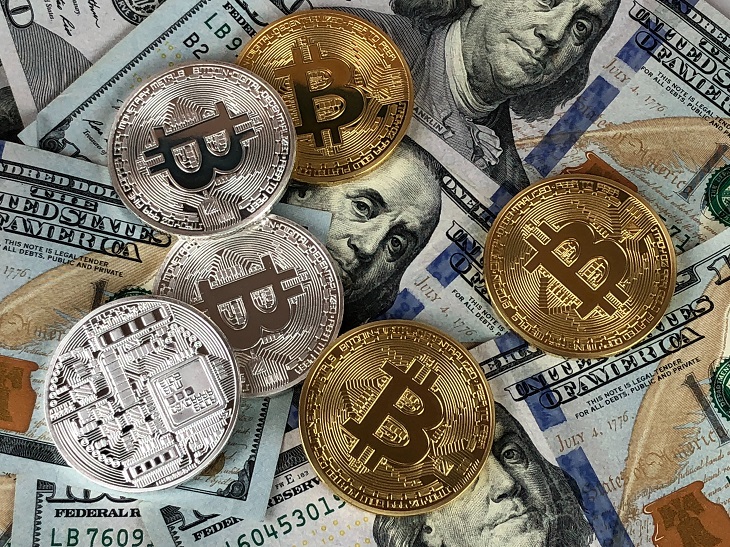Top 10 Questions About Crypto

Cryptocurrency: we’ve all heard of it by now. Whether Bitcoin is the topic of choice during after-work drinks, you’ve met a “crypto millionaire” on Tinder, or you’ve got that one pal who bets his wages on the newest coin *every time* Elon Musk tweets – it’s clear that the term has quickly become coded into our global psyche.
But past a basic understanding of the concept of digital currencies, many of us are a little confused about the detail. Our advice as certified Web 3.0 enthusiasts? Clue up now – because this technology isn’t going anywhere.
At Meta Hollywood, we’re here to help educate and (hopefully!) entertain our readers, while dispelling some common myths and misconceptions. Here are 10 common questions about cryptocurrency – and the answers, of course!
1. What is cryptocurrency?
Put simply, cryptocurrency is decentralized digital money, used to make transactions over the internet. Bitcoin – launched in 2009 – was the first ever cryptocurrency. It remains the best known and biggest digital currency, and the most influential in the space.
But while Bitcoin is the original, it’s certainly not the only kid on the block these days. Other currencies such as Ethereum have also become established as digital alternatives to the cash in your wallet or your bank.
2. How do I buy cryptocurrency?
Buying cryptocurrency is a little more complicated than using Apple Pay. Just as you’d use a currency exchange store to swap dollars for pounds, buying cryptocurrency involves choosing a crypto exchange or a broker.
We’ve put together a quick guide to the pros and cons of different exchanges here.

3. Should I invest in cryptocurrency?
Speaking of things we did earlier, check out our take on investing in NFTs. Both this answer and our previous article carry a similar theme: we’re not financial advisors. We will say, though, that nobody investing in cryptocurrency (especially in the current climate) should do so expecting a quick win, or with money they can’t afford to lose.
4. Will we be able to pay for things in crypto in the future?
Well, you can already pay for some goods and services in cryptocurrency. Is it the most efficient way to make a standard purchase? Not yet. But if you want to buy a multimillion dollar luxury beachside property (don’t we all!) using your crypto – ex-Selling Sunset star Christine Quinn is on hand to help you do just that. (Now that’s a Netflix spin-off we’d watch.)
In other news, Bored and Hungry – a restaurant that utilizes Bored Ape Intellectual Property – allows diners to pay for meals in crypto (recent reporting that the restaurant had stopped accepting digital currencies due to the crash in price incidentally transpired to be fake news). So if you’re down on crypto, now might be the time to pick up a nicely priced cheeseburger.
In general, we expect the usability of crypto to continue to improve, with more goods and services available to be purchased using cryptocurrency – even just by tapping your bank card.
5. Are Web3 and cryptocurrencies the same?
Version 3.0 of the world wide web is like the internet you know and (mostly) love, but decentralized and privacy-centric. In Web 3.0, you – not Google or Meta – own your own data.
Rather than being the same as Web 3.0, cryptocurrencies exist as a vital financial component inside the Web 3.0 ecosystem.
6. Are cryptocurrencies dependent on the stock market?
Until recently, cryptocurrency prices have been based primarily on supply and demand, as well as changes to the regulatory environment. But since late 2021, cryptocurrency has risen and fallen in a similar manner to equity prices.
This could be a coincidence. It’s also possible that because investors appear to be treating cryptocurrency like stocks, digital assets are reacting to market influences, just as equities do.
7. Do cryptocurrencies and NFTs help fraudsters?
Unfortunately, the short answer is yes – this new space is helping fraudsters thrive.
A Federal Trade Commission report published in June found that cryptocurrency scammers have stolen over $1 billion from 46,000 people since the start of 2021. According to the FTC, crypto-related crimes amount to about one out of every four dollars reported lost to fraud – that’s more than any other payment method.
That’s a bit scary, we know. From well-disguised phishing links to wallet hacks and rug-pull NFT projects, the only way to operate safely in the Web 3.0 world is to stay educated and hyper-vigilant.

8. Is cryptocurrency a scam?
While there’s certainly fraud in the space, and prices have crashed in recent months, the concept of digital currencies and the technology behind them is no scam.
It’s true that there are a bunch of crypto firms suffering liquidity crises at the moment, including big names such as Voyager Digital, BlockFi, Celsius, Vauld, Babel Finance and CoinLoan. Does this indicate that cryptocurrency itself is a scam? No.
What is does suggest is that many crypto firms bought into the “super cycle” theory – pre-emptively assuming that, as crypto adoption went mainstream, prices would stabilize, and that huge jumps in value wouldn’t be countered with “crypto winters”: crashes as harsh as those that have played out over the past few months.
The price crash came too quickly this time for the theory (still likely correct in the long term) to prove out – leaving the market in a mess. Just like with the dot.com bubble, there will be financial casualties as the market matures. Unpredictable? Yes. Scam technology? No!
9. Will cryptocurrencies replace fiat money?
Our crystal ball is currently out of action, so we can only give you our best guess on this one.
While cryptocurrencies might not eliminate fiat currencies, the application, user base, and prevalence of digital currency is likely to skyrocket over the next few years. Rather than regular cryptocurrencies replacing fiat money (that stuff sitting in the bank), it’s stable coins that have the potential to rival money held by central banks. These are digital currencies pegged to “stable” reserve assets, like gold or the US dollar.
Stable coins grew from less than $1 billion in circulation at the peak of the 2017 cycle to $180 billion at the peak of the most recent cycle. You don’t need to be a mathematician to realize that’s pretty significant!
10. How can I learn more about cryptocurrency?
If you’ve made it to the end of this Q&A, hopefully you’re enjoying our content. The good news is that we have lots more articles on the way covering all things NFTs, the Metaverse, and crypto.
We also love the fabulous reporting at NFT Now, Investopedia’s guide to cryptocurrencies, and for the audiophiles, the podcast Bankless is an excellent guide to DeFi, NFTs, and crypto finance.
Enjoy!
Featured image by Kanchanara on Unsplash
